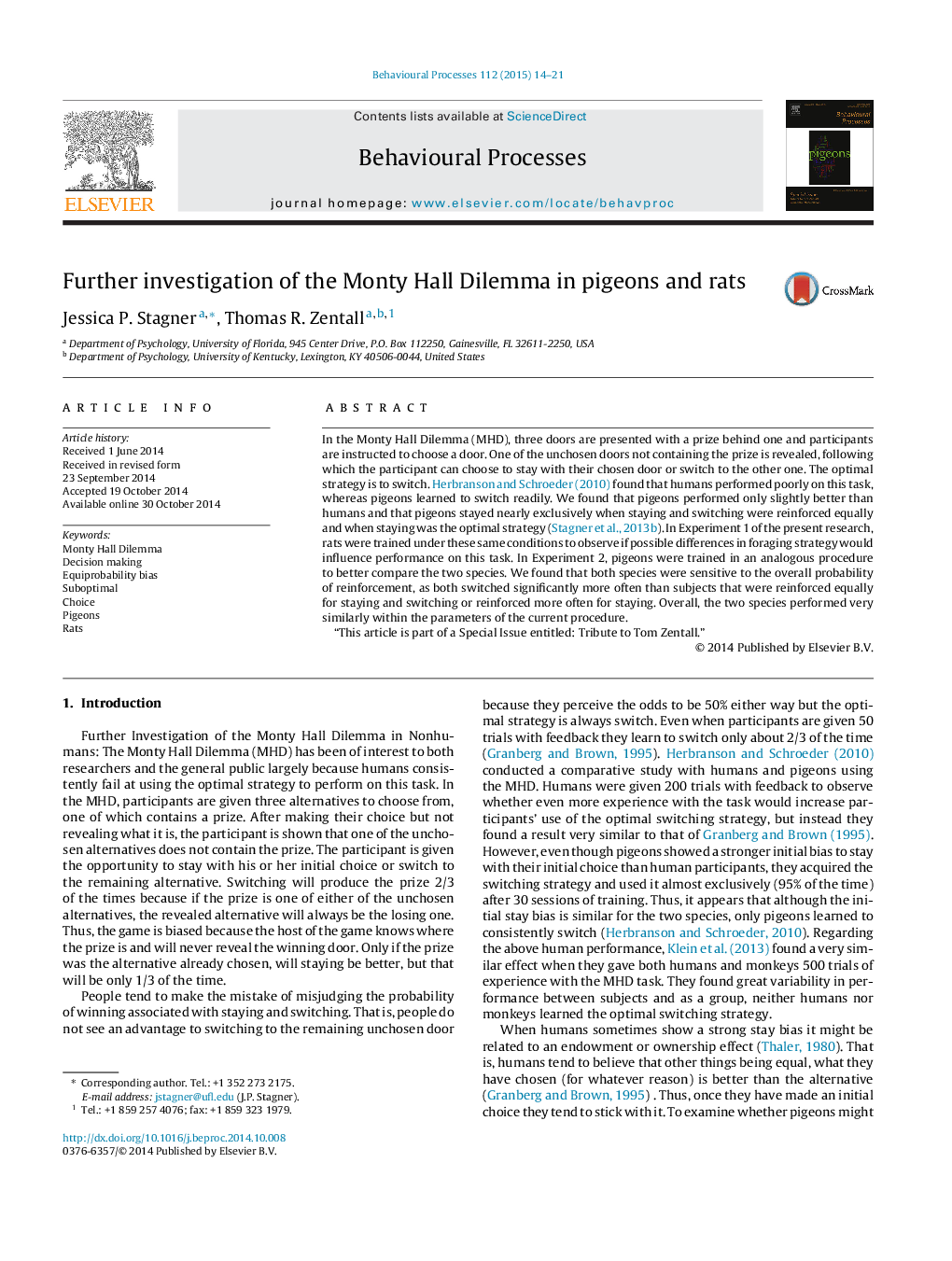| Article ID | Journal | Published Year | Pages | File Type |
|---|---|---|---|---|
| 2426630 | Behavioural Processes | 2015 | 8 Pages |
•Both rats and pigeons were tested in a MHD task.•For each species there were three groups, switch, stay and control.•Rats and pigeons in the switch group switched significantly more than those in the stay and control groups.•Rats and pigeons in the stay and control groups did not perform significantly different from each other.
In the Monty Hall Dilemma (MHD), three doors are presented with a prize behind one and participants are instructed to choose a door. One of the unchosen doors not containing the prize is revealed, following which the participant can choose to stay with their chosen door or switch to the other one. The optimal strategy is to switch. Herbranson and Schroeder (2010) found that humans performed poorly on this task, whereas pigeons learned to switch readily. We found that pigeons performed only slightly better than humans and that pigeons stayed nearly exclusively when staying and switching were reinforced equally and when staying was the optimal strategy (Stagner et al., 2013b). In Experiment 1 of the present research, rats were trained under these same conditions to observe if possible differences in foraging strategy would influence performance on this task. In Experiment 2, pigeons were trained in an analogous procedure to better compare the two species. We found that both species were sensitive to the overall probability of reinforcement, as both switched significantly more often than subjects that were reinforced equally for staying and switching or reinforced more often for staying. Overall, the two species performed very similarly within the parameters of the current procedure.“This article is part of a Special Issue entitled: Tribute to Tom Zentall.”
